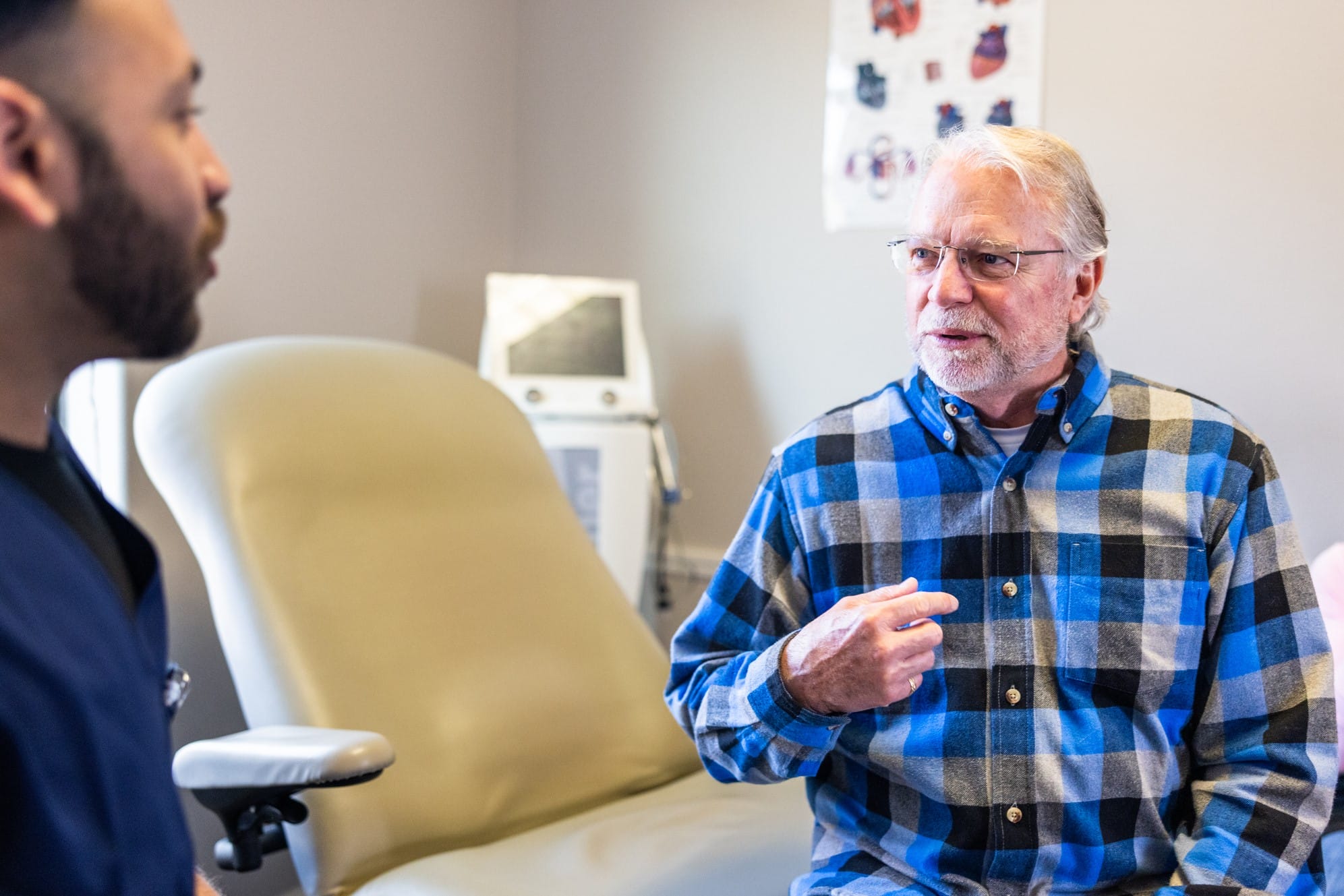If your doctor suspects that you have transthyretin amyloid cardiomyopathy (ATTR-CM), they may recommend a heart biopsy to confirm the diagnosis. A heart biopsy, also called an endomyocardial biopsy, is the most reliable method of diagnosing ATTR-CM.
The idea of a heart biopsy might seem scary, but knowing what to expect before, during and after the procedure can help ease your anxiety.
How to prepare for your heart biopsy
Your doctor will give you detailed instructions on how to prepare for your heart biopsy. You may need to temporarily stop taking certain medications like diuretics and blood thinners to prevent any complications during the test.
Read more about ATTR-CM testing and diagnosis
You’ll probably be told to not eat or drink anything for about six to eight hours before the biopsy. This could vary from patient to patient, though, so it’s best to carefully follow your doctor’s directions.
What happens during a heart biopsy?
The procedure itself typically takes anywhere from 30 minutes to an hour. You’ll likely be awake for the biopsy, but your doctor may offer a sedative to help you stay relaxed.
The thought of being awake for a medical procedure may seem nerve-racking, but don’t worry — you shouldn’t feel any pain during the biopsy, though some patients might experience minor discomfort or pressure.
During the procedure, your doctor will numb a small area on your groin or neck and insert a long tube called a catheter by making a very small incision. An X-ray or ultrasound may be used to help guide the catheter to the heart. Then, your doctor will take a tiny sample of your heart tissue using a small tool that looks like a pair of scissors.
What to expect after your heart biopsy
Generally, a heart biopsy is an outpatient procedure, meaning you’ll be able to go home the same day. Although a heart biopsy is a relatively safe test, you might experience some symptoms, including:
- Grogginess: It’s completely normal to feel tired for a few hours after receiving a sedative. Make sure you plan to have someone drive you home after the procedure.
- Bruising: Sometimes, bruising or minor swelling can occur at the site where the catheter was placed. This should go away within a few days.
- Minor bleeding: You may see some bleeding where the incision was made. This can usually be managed by applying gentle pressure to the area.
Major complications are very rare, occurring in fewer than 1% of cases. You should contact your doctor immediately if you experience more severe symptoms such as shortness of breath, persistent bleeding or significant bruising or swelling.
Try to take it easy for a few days following the test. If working out is part of your daily routine, opt for low-intensity exercises that won’t put too much stress on your body. As long as your job doesn’t involve any heavy lifting or strenuous activities, you should be able to return to work the day after your biopsy.
Sign up here to get the latest news, perspectives, and information about ATTR-CM sent directly to your inbox. Registration is free and only takes a minute.


